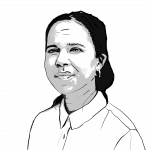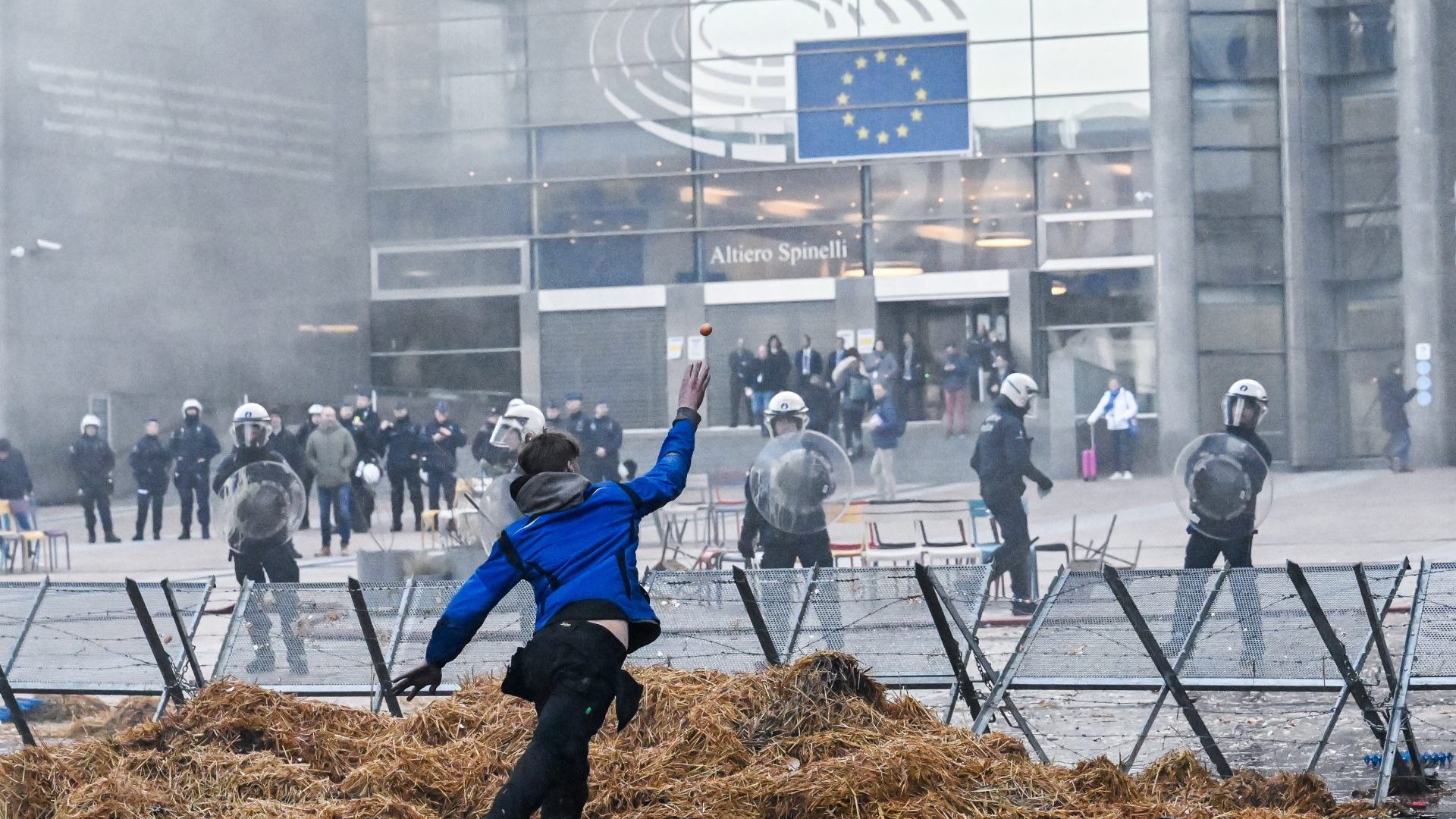Around 1,000 demonstrations, or about three a day, take place in Brussels every year. So like most Brussels natives, I tune out when a newsreader warns about the disruption a protest is likely to cause. Provided you don’t drive into the city, or have any business in the area around the European institutions, most people are rarely affected.
When I arrived at my cooking class last Monday and found my fellow students twiddling their thumbs in front of the school building, it dawned on me that the farmers’ protests might be a different story. I then learned that our teacher had been stuck behind a tractor blockade for four hours.
Another hour passed, and an administrator strode over to announce that our teacher would probably not make it that evening, so we were all dismissed.
On Thursday, I checked local and national news, worried that the protests would make me late, or worse, keep me from getting to my appointment in the EU quarter later that day. Eggs were being pelted at police and a statue had been toppled by irate demonstrators. “Protesting farmers are turning Luxembourg Square into a heap of rubble,” one headline warned, ominously. I wondered whether the situation could really be that grim.
I resolved to make a detour to get to my appointment, one that would help me steer clear of the farmers, the traffic jams and, more importantly, the eggs.
Leaving half an hour early, I jumped on my bike and tried to rehearse what I would say if I came face-to-face with an angry farmer. What email could I use to best prove to police officers that I truly had an appointment in the street they had cordoned off? Which happy thoughts could I line up to keep me from ugly crying as those same police officers turned me away, bemused by my lack of proper planning?
The detour I chose had me cycling uphill for the better part of my journey, and I tried hard to exert minimal effort in a bid to keep my armpits dry, as the above scenarios played on loop in my head.
The first five minutes of my journey were uneventful, which seemed suspicious; if traffic was so clogged up in the EU zone, it would also have affected the bypass around the city centre, or as we unimaginatively call them, “les tunnels”.
As I got closer to the EU neighbourhood, I spotted two police officers on horseback on the other side of the street and wondered, as I always do, who ever thought that a 600kg, jittery animal would make a good combo with angry people and firecrackers. Cycling past joggers and pedestrians, I wondered whether they realised that an entire section of the city was busy going up in flames.
But when I got to my destination, the area was curiously calm, the street having been closed off to traffic and cleared of parked cars. I secured my bike as I scanned my surroundings, fully expecting an out-of-breath security guard to rush towards me, yelling, spit flying out of his mouth, that I could absolutely not leave my bike there.
I looked at my watch and realised the journey had taken me a brisk 22 minutes – a plus – but I was also positively sweating – a setback.
With 40 minutes to spare until my appointment, I resolved to get closer to the action, curious to see whether I could get a whiff of the vandalism taking place. I didn’t get further than a block. Police officers looking decidedly like Ninja Turtles weren’t letting anyone through any further, so I turned round.
Despite what the populists say about the meddlesome EU interfering in the life of member states, our lives rarely intersect with the EU, or even with the people who are angry at it. At worst, you get a sweaty back every now and then. This is what it’s like to live in the city that hosts the EU institutions.
Linda A. Thompson is a Belgian journalist and editor living in Brussels




